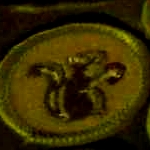New Year’s Eve 2010: my twelfth blog on the twelfth point of the Scout Law. Today, “A scout is reverent.” This was always the toughest one for me to swallow. I was loath to stomach the idea of revering virtues I couldn’t see or feel and ideals that might clash with my own. In an era of corporate transparency (and leaks), political pendulums swinging wildly, and the tarring and feathering of former economic pundits, is reverence still relevant? Or is it a time for reactionary opportunism?
Reaction is too easy: it is the wisdom of hindsight, allowing armchair critics to tear down other people’s efforts—or hop on someone else’s bandwagon. Those responsible for original efforts—organizing an event, speaking their minds, creating a movie, or trying anything new—can’t rely on the wisdom of hindsight. They must look forward.
Looking to the future, like hiking through a forest, we can either seek a destination or we can follow a path. And then there is the option of just wandering: perhaps sometimes “all who wander are not lost.” I wander and I get lost. I have an awful sense of direction. For my hiking skill award as a young boy scout (I suppose it’s past the statute of limitations to admit this now), I got lost on a short five mile hike not far from my house. I remember admiring trees, squirrels, and the sensation of journeying forth into the unknown. On the way back, I didn’t remember whether I had come left or right at that particular fork in the trail. I ended up many miles from the scheduled pick-up and relied on friendly farmers to loan me their phone and tell me their address. Couldn’t I have ogled the squirrels and still made it to my destination?
As much as I may love wandering, when finances, emotions, or career aspirations loom, aimlessness is not my choice. I need to trust, in my gut, the direction I’m headed. Some folks needing such direction prefer to chase a destination. Reading the first half of Stranger in the Forest: On Foot Across Borneo, I saw how author Eric Hansen’s idealistic pursuit of a bygone utopia turned to disappointment at seemingly every step. But partway through, when he lowers his eyes, shifting his attention from the destination to the path beneath him, he begins to really learn and experience. To paraphrase Dr. Charles Heck’s retelling of an ancient Eastern parable: “With one eye fixed on your destination, there is only one eye left with which to find the way.”
Robert Pirsig wrote two thick tomes for people in my dilemma: the first, Zen and the Art of Motorcycle Maintenance, explored Values. Lila, the second, Quality. In these inquiries into modern morality, he wasn’t looking for black or white, but like me he wasn’t sure he could settle for a soup of wishy-washy grey. Even if entropy exists, even if leaders fail us, even if our paths become overgrown, I believe there are enduring virtues of aspiration, progress, and improvement.
Birds don’t need a compass or map to find their way to warm climates. They may not know true north, but they know warmer. Elephants don’t have GPS to find water. They may not know their latitude and longitude, but somewhere in their bones their thirst points the way. Reverence need not be toward absolute right, some highest power—but it is possible to discern higher, better, further.
It’s not about dogma, but about respecting something higher—say the intentions of a ritual, as opposed to revering the ritual itself. Just memorizing the order of the Scout Law’s 12 points, as dogmatic and draconian as it may seem, can be helpful. I still remember it. Here I am pondering its importance 27 years later. It is a list of 12 virtues that lift my eyes upward without losing sight of the path I’m walking.
“There is something about the Scout Law that makes it different from other laws,” says the Boy Scout Handbook. “The ideals of the Scout Law are high—they are meant to be! It is only by striving toward high ideals and keeping faith with them that you can become the man you want to be.”
 In a time of throwing out the old, embracing the new, and charging boldly deeper into the forest, stop for a moment. Think back to what got you here and what you still believe in. That is what you can revere; that is a path you can continue to follow. And while you’re stopped, keep an eye out for squirrels. Now which way was it that you were headed?
In a time of throwing out the old, embracing the new, and charging boldly deeper into the forest, stop for a moment. Think back to what got you here and what you still believe in. That is what you can revere; that is a path you can continue to follow. And while you’re stopped, keep an eye out for squirrels. Now which way was it that you were headed?
Thanks for reading. Cheers,
![]()
P.S. Throughout 2010 I’ve celebrated the 100th anniversary of scouting by blogging monthly on the 12 points of the Scout Law. In case you missed any, here are links: “A scout is trustworthy, loyal, helpful, friendly, courteous, kind, obedient, cheerful, thrifty, brave, clean, and reverent.”
Photo by airplanemouse (that’s me)